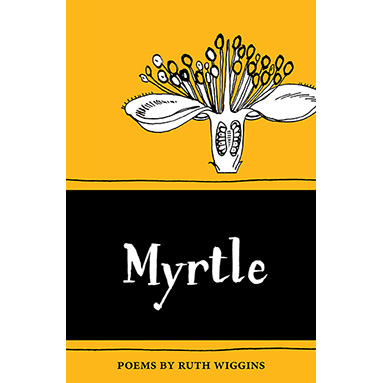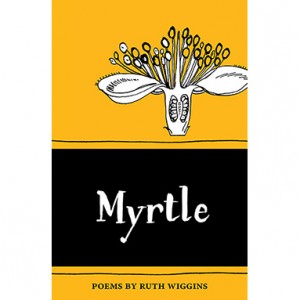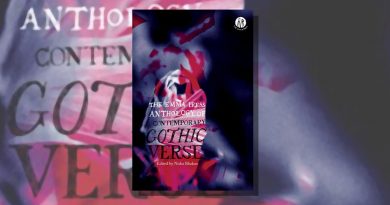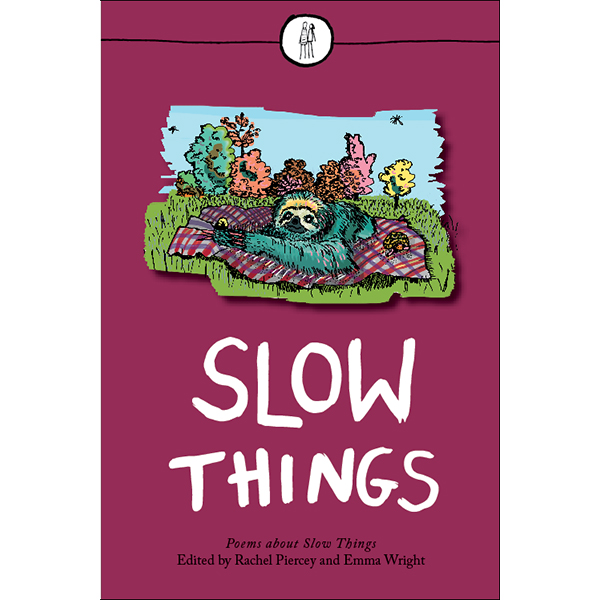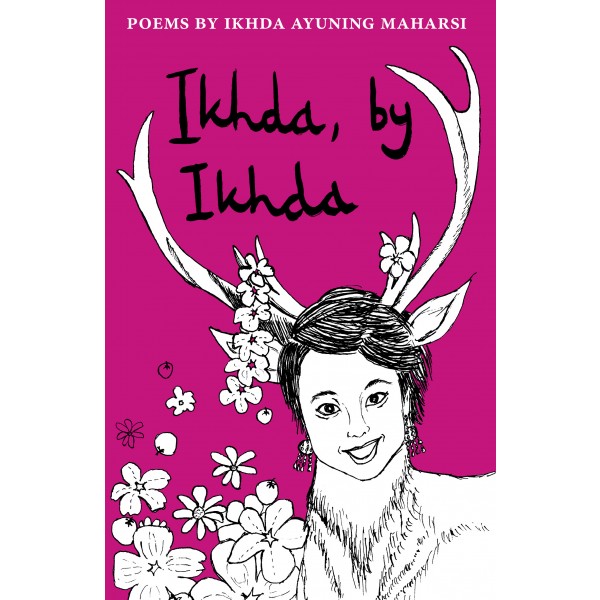Myrtle by Ruth Wiggins
-Reviewed by Wynn Wheldon–
I thought I was going to have trouble with this, what with the first poem being all right justified and containing words with spaces between their letters for no very obvious reason. But then I decided that since it was called ‘Against Perspective’ I’d chuckle instead.
My fear was dispelled by and the chuckle grew broader with the next poem, called ‘I’ve Been Crumbling Anti-Histamines Into Your Food All Week’, in which a new home is turned into a bower: “the whole thing seeds itself up the street. Early outbreaks / of lovage, sweet briar, vetch”. Here we are on the floral side of Myrtle. But the poet is a classicist, and in the Rome of Ovid and his fellows the Latin word myrtus (myrtle) was a non-vulgar euphemism for the female pudenda. Myrtle was considered aphrodisiac, and is associated with Aphrodite in Greek myth and Venus in Roman. So having given us the floral, the poet now introduces us to the clitoral, or at least the aphrodisiacal, in ‘Borrowed Time’: “This afternoon you fucked me, right out / of my pyjamas and into yours” Thenceforth the poems hover back and forth, between the intimate and the public, with diversions into the quotidian here and there.
There’s plenty of tenderness, of a robust kind: “Come the apocalypse” there’ll be “usurping girls / …I’ll just / have to learn to kill”. In a rather macabre love poem, ‘On Fear of Your Flying’ her lover’s sperm “startle // into memento mori”. His having not died, I can’t believe her partner would not want to be identified as the “gorgeous boy” of the final poem, a play on a deliciously euphemistic Horace ode: “Be mine, right here beneath / this cheerful old vine”.
Horace is not the only classical poet Wiggins borrows from. She does a wonderful job with a Propertius elegy. ‘Only the Lover’ begins “Silly mortals, always second-guessing / the hour of your death…”
You type your vital stats into deathclock.com
but from the Circle Line to Tora Bora,
all exit points are hidden.
The language, the forms, the prosody in all these poems is unabashed, unafraid and enjoyably energetic. Best of all, each poem is a surprise. Wiggins has a distinctive voice, characterised not by sameness but by unexpectedness. ‘Crawk’ is a poem about birds. I thought at first the reference was to crows, but the subject of the poem has a “quarrel of sisters”, which suggests sparrows; then again, towards the poem’s end she “Grouts her gizzard and gargles with rocks”. Who knows what bird this is (it follows a poem, ‘Leda’ that features not one but several swans, not to mention eagles) – but it doesn’t really matter. The poem draws the reader in, for it is full of activity, having begun with the teasingly abstract “She’s the opposite of mirrors”, from where we have no idea where the poem will lead us.
Yes, unexpectedness: there’s a poem describing the poet’s battle with a spider; a poem about the herb rosemary; a poem that bounces from side to side of the page, about the coming of spring, “cracking a courtyard laugh”; there are poems inspired by paintings; there’s a nanny goat and there’s a fox.
Myrtle is a thoroughly assured collection informed by classical learning and tempered with an erotic hum that underlies several of the poems. It delights in hoisting the ideas and images that prose cannot without preparation. It is thorough poetry, and surprisingly a debut. There’ll be more.

